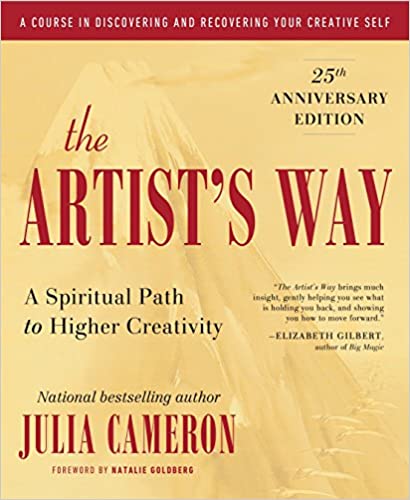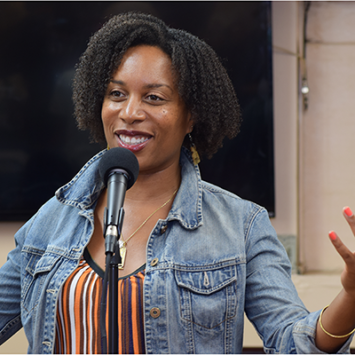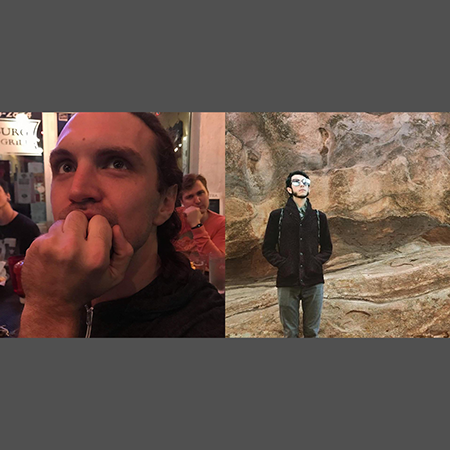Living Vicariously
- My Niche Is Human
- Episode 10
- 11 minutes
- Solocast
- Cognitive, Identity, Legacy
Show Notes
- I don’t think there is anything wrong with being upset for someone you don’t know who has passed, especially in such a tragic manner
- I wanted to know where this critic’s voice was coming from and what I could do to understand it
- I believe I am not the only person feeling this way, and if you’re not feeling this way for Kobe and this event, then certainly for other people and other events.

Rest in Peace, Kobe Bryant
I was inspired to write this post/record this short episode in response to the recent passing of Kobe Bryant, his daughter, and the rest of the members on their helicopter when it crashed and left no survivors. My immediate reaction was shock, and then I got upset.
In addition to my feelings, I couldn’t help but wonder WHY I was so upset for someone I did not even know. The critic voice in my head kept saying “well you don’t even know the guy, nor his family; why are you so upset?” I hope this short episode helps you unpack your own feelings in a way that brings you some peace and also shines some light on the gifts that these humans are leaving behind.
Resources Mentioned
This book will help you to understand yourself better.
- Breaking The Habit of Being Yourself: How to Lose Your Mind and Create a New One by Dr. Joe Dispenza
Living Vicariously – Steven Fage
Steven: [00:00:00] This is episode number 10 of the, my niche is human podcast.
[00:00:05] Welcome back to another episode. I want to sit down and talk to you today about the idea of living vicariously. I’m inspired to do this episode, as you may have heard the passing of Kobe Bryant and his daughter and other unfortunate victims of a helicopter crash. Now, when I found out about this, I initially got first, I was in shock.
[00:00:35] Then I was very upset and I’m thinking, well, shit, why am I so upset? I don’t know this man. I’ve never met him nor his family. You know, who am I to be so upset about someone I don’t know. But this is not a new idea. Celebrity is not a new concept nor is being upset when they pass. All right. We all get upset when famous people die all the time.
[00:00:56] Robin Williams, Kate spade, Michael Jackson, take your pick. And it got me thinking, why am I so upset? You know, I, I. I read the news. I actually saw it on, on a post somewhere and I was like, Oh shit, something must have happened. And then I got upset. I’ve already said that like six times. Yes. Cause it’s, it’s kind of a strange idea.
[00:01:13] So I started thinking, why am I so upset? Why do we get upset when people we don’t even know die? So then it’s, what is the idea of celebrity? What does that mean to us? You know, celebrities are, yes, there are people that pee and poop just like you. Right. Just like me and you they’re regular people. They have bad days, but they’re built up to be these great symbols, the symbols of human virtue, the symbols of what can be done in the name of greatness as an individual and for our species, they show kind of our potential when you try very, very hard, or when you’re born with really great talents and you take advantage of them, they’re an example of an individual’s effort, right?
[00:01:54] So something that we all aspire to. So why do we get so upset? I think we get upset for a couple of reasons. One, because they are symbols and “glue” in memories say when we’re growing up. So when you’re growing up and you’re watching sports teams and let’s say your mother or father, like a sports team, and you’re naturally sucked into that whole culture.
[00:02:15] And a lot of that is driven by individual stars that drive teams to championships. And when they win, you feel happy and it releases endorphins and it puts an imprint on your memory and it’s all, thanks to this one individual. We owe them so much for allowing us to feel things we might not have felt otherwise.
[00:02:34] So whether it’s sports or art or theater, or, I mean, it’s all art in my opinion, but whatever it is. They have a place in our memory, in our history and a part of us becoming who we are. So it’s almost, they get a little bit of the credit and when they’re not around anymore to do any more great things, we think, well, shit, I mean, am I going to now miss out on more “stoke”?
[00:02:59] All right. So that’s leading me up to a point I want to get to in a second. But the second biggest point. Maybe the first point I want to make with all this regardless. It’s the title of the episode, right? Stop living vicariously. I say another reason we get upset when famous celebrities pass is because we can no longer be lazy about our aspirations.
[00:03:22] Comma we’re living vicariously. That’s my note. And what I mean by that is I feel that, especially in this world of social media, we have instant access to everyone’s lives, especially celebrities who do such a great job of portraying the story of this “virtuous figure”. Right. We can get access to that anytime we want.
[00:03:41] And if we have aspirations of being a poet or a dancer or a surgeon or a basketball player, we can almost scratch that itch. By following this person’s life. But when they pass a part of us says, Oh shit. Now I’ve got to scratch my own itch. Or maybe find someone else to do it for me. But it’s that, “oh shit, I was living off their efforts”. I was living off their excitement. They were getting me excited.
[00:04:11] It almost allows us to be lazy, quite frankly. I mean, think of weekends that you binged all weekend, sad as, you know, sad as Eeyore, right. I’ve done it. You sat in your home all weekend long, binge done the Soprano’s or game of Thrones, or take your pick.
[00:04:26]But those characters played by actors who in turn, you know, established celebrity. They’re literally there while we’re mourning, whatever it is that we’re mourning. They almost take care of us. They help us distract ourselves, or they show us examples of how certain life events can play out.
[00:04:44] And it almost gives us a little bit of motivation. They’re essentially our therapist in that case. All right. But when they’re not around, we’re like, shit, I got to kind of do the work myself or again, find someone else. So this all kind of makes me think, you know, I kind of have a silly story, but it’s a, in a nerdy sense.
[00:05:02] It’s a very interesting one. I will say. So, someone last year, actually wasn’t even a person I’m just gonna fucking tell the story. Cause it’s silly and embarrassing. So Avengers End Game. It came out what last May. And as you obviously may have known, if you saw it, Tony stark dies. Spoiler alert.
[00:05:20] Not quite it’s a year later, this is probably safe. The point is after I saw that movie, I was legit upset for two days. And I’m like, what the F, what is wrong with me right now? He’s a character. He’s not even a real person. And again, with that situation, I started thinking why the Frick am I so upset that a superhero is dead?
[00:05:43] Think about that. But then I started to do the math and I’m thinking, okay, well, shit, let’s think about this. There’s a reason for most things. And it’s, what was it? 10 years, 22 movies. They all came out one at a time putting together this big grandiose, epic of a story. All right. So one at a time you started to fall in love with any given character, whether it’s black widow or the Hulk or Tony stark in my case.
[00:06:09] And, and when Ironman first came out, you know, if that was 10 years ago, let’s say for loose math, I was just a nerdy engineer and I didn’t feel very cool. And then I saw Iron Man and I’m like, that’s the guy, Tony stark, Billionaire ,Playboy, philanthropist, genius; whatever you said, right? And I’m like, shit, at least someone’s doing it.
[00:06:31] If I can’t do it, at least someone’s doing it. And I didn’t realize until 10 years later that he was scratching my itch. And by aspiring to be like Tony stark and to almost lean on the character, the idea of this character in my mind, I’m thinking, well, at least he’s doing it. He’s standing up for the cause he’s standing up for what I wish I could be, you know, to some extent.
[00:06:54] But the problem with that is it almost made me lazy. The thing is, when you, when you really get into mindfulness and meditation. They talk a lot about when you imagine something taking place in your mind if you’re meditating. Technically speaking, your mind doesn’t know the difference between you imagining it and it actually happening. Which is how you can kind of invoke or stoke feelings by changing your thoughts and getting yourself to these places.
[00:07:20] So in that context, thinking, well, Tony stark dies. Yes, I’m sad. And I, I kind of aspire to be that at least half that awesome. You get the point. There’s really no difference between a character in a movie and a real person. Yes. I understand. There’s difference between real people with real lives and characters.
[00:07:41] But if you look back even to like the Roman times with these great epics of heroes or ancient Egyptians and people being painted on walls, there. As if they’re gods and to us, I mean, quite frankly, those are just stories with characters in them, right? Yes. They were people, but that’s where stories come from.
[00:08:00] So in this story of Marvel, Tony stark dies. I get sad. It’s the image, it’s the symbolism. And it’s the meaning that I leaned on and almost allowed a part of myself to kind of, I kind of let that to be. I let that become a part of myself and I let it check the box so that when this character died, when the story said, he will no longer create good work or great art, I said, “shit”.
[00:08:27] Now I got to do it myself. And now there’s a little piece of me missing and what am I going to do to scratch that itch? Because Tony is no longer going to do it. So whether it’s Robin Williams or Kate spade or Kobe Bryant, yes, those are very tragic stories and those are real people. And please, I’m not trying to compare a damn comic book character to real people and real tragedy.
[00:08:48] What I’m looking to do here is to stoke how you view your admiration of celebrity and fantasy and all these ideas and think about who you admire and why. And then think about what in them can you build in yourself because they’re not going to be around forever and hopefully you don’t live your life just scratching itches by seeking to live vicariously through all these different characters in your story, in this movie of life.
[00:09:19] And with all that said, my condolences go out to the Kobe Bryant family and all those who passed in this tragic helicopter crash. I ask that you simply reach out to your loved ones.
[00:09:31] Tell them you love them. Cause we obviously know life is incredibly fragile. I just saw a post by my very good buddy Rashad Austin. Shout out to you. He, posted a quote that said, I wish people realized the blessing or how much of a blessing it is to leave your house and come back in the same day.
[00:09:51] Everything’s very fragile. We take it for granted and I hope this, this kind of reminds you and that’s the other gift that celebrities or people that we aspire to be when they passed their passing gift is to remind you that no matter what you have, no matter how much you have. It can all be gone in an instant.
[00:10:10] So thank you for listening. I’ll talk to you real soon. Take care. .
Sign up to receive email updates
Enter your name and email address below and I’ll send you periodic updates about the podcast.








